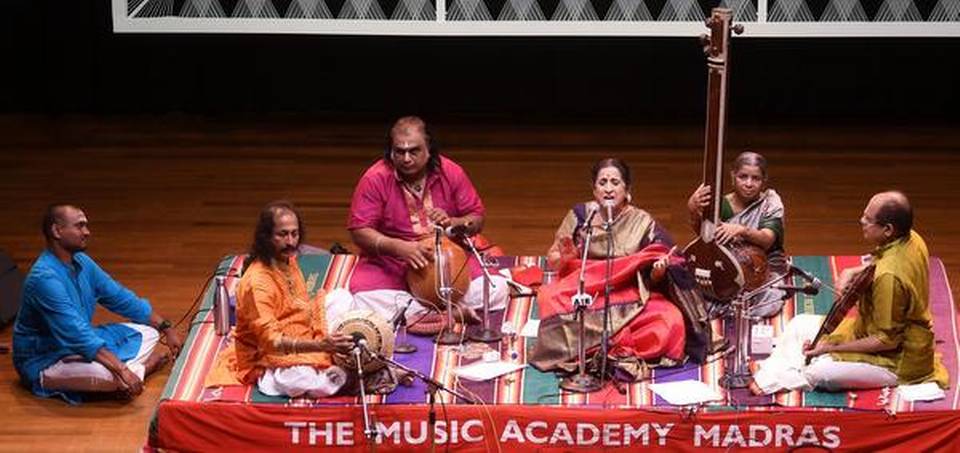The Music Academy foyer was brimming with rasikas an hour before the concert began. Aruna Sairam, over the past few years, has been riding the crest of popularity.
When the curtains went up, the stage was overflowing with young rasikas. Aruna launched her vocal performance with the famous ‘Viriboni’ Ata tala Bhairavi varnam. Close on the heels came ‘Tulasamma’ (Tyagaraja) in Devagandhari. One could see the real Aruna only partly in these two offerings. She came up with an offbeat prelude for Harikhambodi to sing Tyagaraja’s ‘Dinamani vamsa.’ Aruna’s energy came to the fore in this kriti. Energy, we all know is her USP and it comes through in every concert. The pallavi which was infused with high-speed swarakalpana was firmly rooted on ‘dhaivatam.’ As expected, it drew several rounds of applause. Aruna didn’t let the tempo slump and offered a brisk alapana of Pantuvarali for ‘Sarasaksha’ (Tyagaraja) and swarakalpana linked to ‘Bhamini samudaya’ with the swaras landing strongly on ‘Pa’, ‘Ri’, ‘Ga’ and ‘Sa’.
Getting into a mellow mode, Aruna rendered Syama Sastri’s ‘Brovavamma’ in Manji, the serene notes echoing through the jam-packed hall. ‘Amba Paradevathe’ in Rudrapriya (Krishnaswamy Ayya) set the stage for Thodi raga elaboration.
Time-tested way
Here, Aruna followed the time-tested path to project the raga in its archaic exquisiteness. Her dedicated, well-designed essay formed a perfect preface to the tanam. The pallavi Kai vidamaattan rangan pandurangan nambum adiyavarai (adi talam), composed by her, was an ode to her favourite deity Pandurangan.Niraval and trikalam led again to a shower of swaras. The pallavi was further embellished by Ragamalika as well as different verses prefixing the pallavi with ‘Brindavanan’, ‘Syamala sundara roopa’, ‘Bhaktajana vatsale’ in Abheri, Hindolam and Brindavanasaranga.
The concert closed with ‘Tamara saksha’, an ati-vilambita kala composition of her guru Brindamma in Yadukulakhambodi and ‘Mannupugazh kosalai’ (Kulasekara Azhwar).
Vittal Ramamurthy on the violin rendered modest support, so did J. Vaidyanathan on mridangam and S. Karthik on ghatam. The thani stood out for its rhythm patterns.

 Photos
Photos